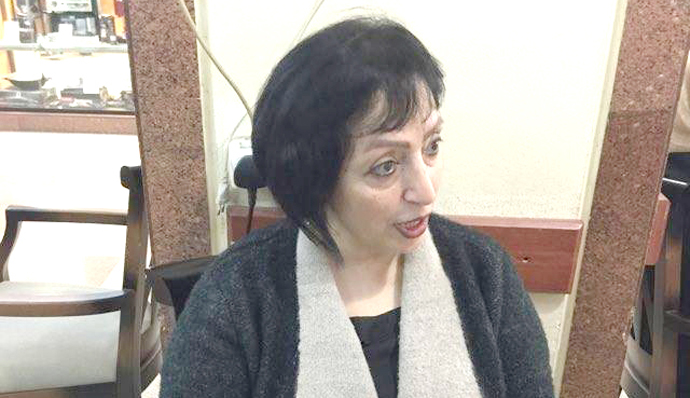Huda Albert, owner of the Solid Waste Disposal National Project proposal
“Incinerators help dispose solid waste that causes fatal diseases,
Funding sources are ready; it won’t cost the state a pound!”
Huda Albert, is an Egyptian woman married to a German national, living in Germany, they both love Egypt and visit often, yet have been bothered by the trash piling up on the streets. The problem, they believe, damages Egypt’s image, and hence, they started searching for a solution to solve the trash problem and protect citizens from resulting diseases. Finally, they came up with the advanced waste incinerator.
Huda Albert knows that such project would cost large amounts of money, she managed to provide a German funding source. Following that, she rushed back home to report the good news to government officials, but was faced with some hindrances.
In light of this, Middle East Observer interviewed Huda Albert to shed light on her project, its implementation and benefits.
Tell us about the project and how you came up with the idea for it?
The project is based on collecting trash at one place, instead of having it pile up along Cairo streets and then burning it in the open, spreading respiratory diseases. It is an advanced waste incinerator that helps keeping the air pure in order to prevent such diseases.
We have noticed how the trash problem was harming Egypt’s image, so we embarked on finding a solution. From here came the idea of a modern waste incinerator. I know that such project would cost lots of money, so we went back to Germany and started to search for a funding source.
Have you found a German body that is ready to fund the project?
Yes, I proposed the idea to private banks in Germany and they agreed to fund it through building incinerators, installing necessary machinery and providing expertise. The Egyptian government will, afterwards, be responsible for project management and staff recruitment, hence creating jobs. But, unfortunately, so far I could not meet any state official to discuss the project.
In exchange for their fund, what would the banks get from this project?
They will surely benefit a lot from it, waste incineration generates power which the banks will then have the right to sell, for a period of time as would be agreed upon with the Egyptian government.
What are the costs that will be incurred by Egypt? And how will it benefit from it?
We only need the state to provide us with land on which the project will be established. This facility has to be close to paved roads so that cars can reach it, and to power lines to easily transmit the produced electricity. Moreover, a water network is required.
As for benefits for Egypt, they are plenty, for instance, such incinerators can be useful to agriculture, by transforming resulting toxic gas to soil fertilizers. Emissions can be used in surface treatment, and a type of road tiles can be extracted. Moreover, heating rooms can be built inside these incinerators, in which timber can be dried easily without risks of rotting. We should not forget as well the ability to generate power.
Are there any suggested places where these incinerators could be established?
Any place with cement factories needs a nearby incinerator, because they use nearly 50 per cent of Egypt’s total power. Through incinerators, we can provide these plants with electricity at affordable costs, and at the same time avoid repeated power-cuts, especially during the summer. More importantly, setting up an incinerator in each governorate will help eliminate waste problems for good and will contribute to exporting surplus power generated to neighboring states.
Do these incinerators pose a threat to the environment or public health on the long run?
Such incinerators are used in developed countries because they are eco-friendly and conforming to World Health Organisation standards. They are probably the only solution to protect Egyptians’ health. Still, it is preferred that they are established away from residential areas, since waste is still a source of air pollution. Surrounding areas could instead be turned green.
Some believe that recycling is a better way of disposing waste than burning…what do you think?
This project is about disposing highly dangerous solid waste, as they cause pollution and fatal diseases and may, in large amounts, cause fires. Incinerators are, in fact, used to dispose non-recyclables such as construction site and hospital waste.


